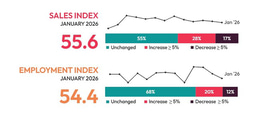
In a world where work often follows us home, a growing body of research is raising a red flag: constant connectivity might be doing more harm than good. A study featured in Inc. highlights how even the expectation of being available after hours—whether or not employees actually respond—can lead to serious consequences like burnout, anxiety, and weakened personal relationships.
The Real Costs of After-Hours Communication
Mental Drain: Just knowing you might get a message from your boss in the evening can create stress and emotional exhaustion.
Blurry Boundaries: Without clear lines between work and personal time, employees struggle to fully disconnect and recharge.
Team Burnout: Over time, this culture of constant availability chips away at team morale and productivity.
What Can Leaders Do?
Create Boundaries: Make it clear that messages after hours don’t require a response until the next workday.
Model Healthy Habits: Use email schedulers or delay sending messages until morning. When leaders respect boundaries, others follow.
Talk About It: Set communication norms as a team. Giving people permission to unplug helps everyone feel more supported and balanced.
Work-life balance isn’t just a nice idea—it’s essential for sustainable success. Respecting downtime might be one of the most powerful ways to build a healthier, more productive workplace.
Want to dive deeper? Check out the original article here.
Recommended Content
Navigating the Hybrid Paradox: A Blueprint for Modern AV Excellence






Please sign in or register for FREE
If you are a registered user on AVIXA Xchange, please sign in